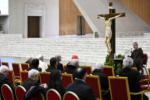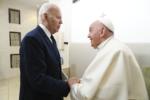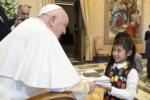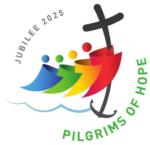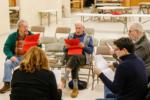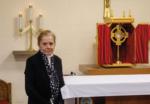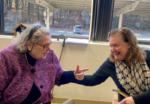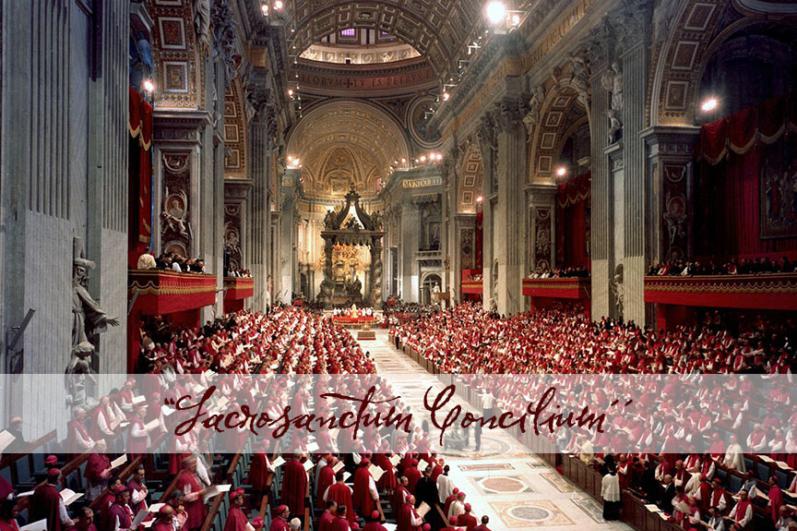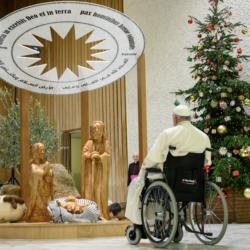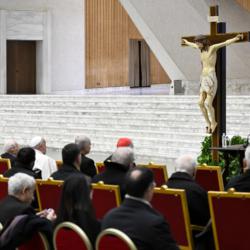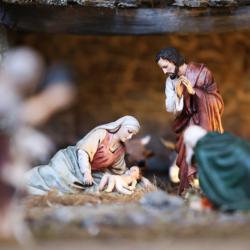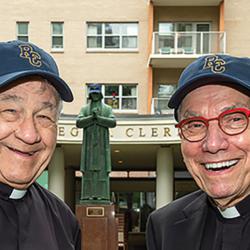'Sexagesima adveniens' -- the coming 60th
There is a long tradition at the Holy See of titling documents with the first couple or few words of the official Latin text. The words chosen often give a hint about the document's contents.
This article's title follows that protocol, and the 60th anniversary that will be celebrated is that of a document of the Second Vatican Council -- itself titled "Sacrosanctum Concilium" -- "Most Sacred Council." An interesting departure from the usual protocol is that the Latin title of this document hints at nothing of its contents; even more, the title seems also to be the name of the "author" of the document.
Dec. 4, 2023, will be the 60th anniversary of this document, called a constitution, the "author" being the Second Vatican Council itself, and the contents being about the sacred liturgy. This would be the first of 16 documents of varying types, lengths, and forms that this council would approve and be promulgated by Pope St. Paul VI.
Most agree that it is not accidental that all this happened. Rather, it was the intent of the Council Fathers (they were all men) to alert the rest of the People of God that the liturgy was the starting point of all their deliberations, the guiding principle of the whole council, and the most important of all the issues and matters that the council would subsequently address.
The preparation for this document and the reform of the liturgy, which it ordered the pope to implement (following the same procedure as had the Council of Trent), had started quietly behind abbey and monastery walls in Austria, Belgium, France, Germany, Italy, and yes, the United States.
The preparatory work, the council document, and the work that followed the council is a body of work that, even in a cursory way, cannot be covered in a single column or even several columns. What I know I could not adequately do or even attempt, I invited someone who is much better prepared and willing to help us to celebrate this anniversary.
For the next several weeks, Father John F. Baldovin, SJ, professor of Liturgical and Historical Theology at Boston College School of Theology and Ministry, will be the guest columnist. When I made this proposal to him, he was, as is usual for him, eager to help us all get a better sense of where we've been, what we are now doing and why, and in what direction we seem to be going. It is often said that it takes at least 100 years for any council to be absorbed by the church, to appreciate its teaching, and to put its mission into action. So, this point in our church's life is still at least 40 years -- and likely more -- before we start to see the council's agenda lived. There is much to be done.
Before I hand this column over to Father Baldovin and as we approach the 60th anniversary of this key document of the Second Vatican Council, I will go where angels fear to tread and point out a few names of Boston liturgical giants and hint at some of their contributions.
Cardinal Richard Cushing was an early supporter of the "sacramental apostolate," later the "liturgical apostolate." At the Council itself, he advocated a wider use of the vernacular in the liturgy; he appointed a liturgical commission, naming Sister Flavia (Agnes Catherine) Murphy, CSJ, as the only woman member in 1965. He released a pastoral letter on the reformed liturgy "Liturgy and Life" in late November 1964.
Another Sister of St. Joseph of Boston, Sister Francille, an early champion of the apostolates mentioned above, helped edit and write the newsletter of those apostolates -- "Mediator."
Father Shawn Sheehan, Father Joseph Collins, Father James O'Donohoe, Msgr. Russell Davis, and Msgr. Dennis Sheehan were all widely known for their pastoral sense regarding the liturgical life of our parishes and were ever ready to assist in any way possible.
The most widely known and appreciated of Boston's contributors would have to be Msgr. Frederick R. McManus. The Lynn native was a canon lawyer by academic discipline. During the many decades he was a professor of Canon Law at the Catholic University of America, he was called on for service beyond the law.
He served on the preparatory commission for the liturgy document and was a member of the Consilium instituted by Pope St. Paul VI for the implementation of the council's liturgical directives.
As we approach the 60th anniversary of this document, Father Baldovin will serve as a sure guide in looking back at names and events beyond the archdiocese and looking forward to what we must still do.

